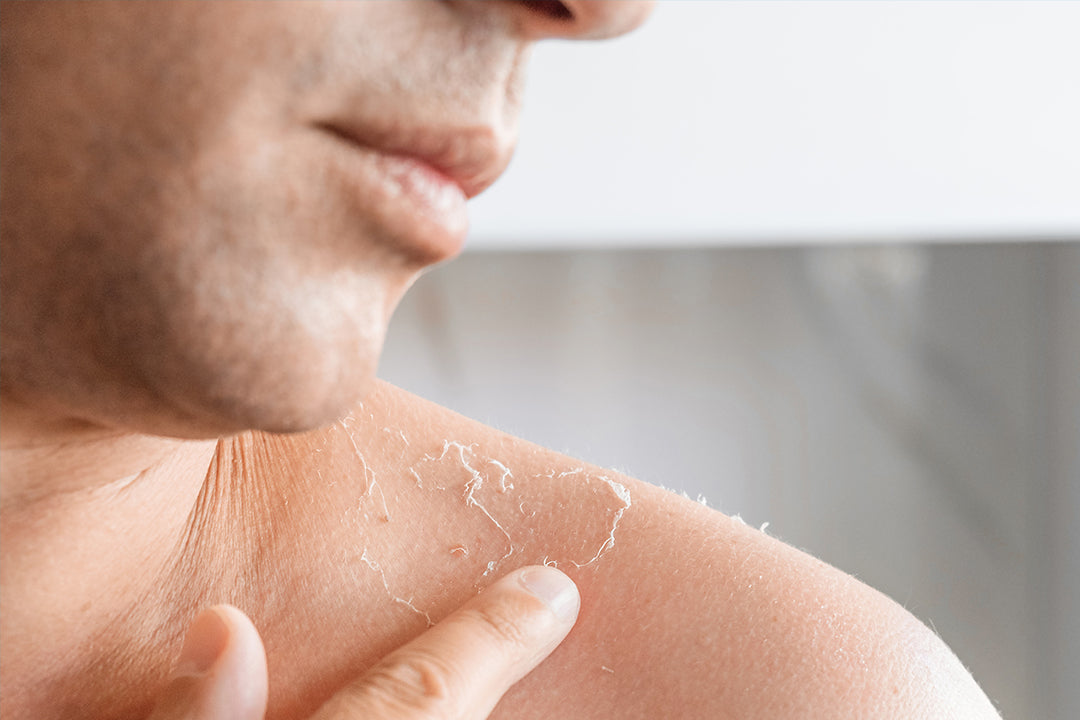Sensitive skin can be challenging to manage, with reactions to new products, environmental changes, and even stress causing flare-ups. If you often experience redness, itching, or stinging, you may have sensitive skin. Understanding how to identify and care for sensitive skin is essential to maintaining a healthy, balanced complexion. In this post, we’ll explore how to recognize sensitive skin and share tips on creating a gentle skincare routine tailored to its unique needs.
How to Identify Sensitive Skin
Sensitive skin often presents with specific signs and symptoms that set it apart from other skin types. Here are some key indicators that you may have sensitive skin:
- Frequent Redness and Flushing:
- Your skin easily turns red or becomes flushed, especially when exposed to temperature changes, spicy foods, or after applying skincare products.
- Itching, Burning, or Stinging Sensations:
- You experience discomfort such as itching, burning, or stinging when using certain skincare products or being exposed to environmental factors like wind, sun, or pollution.
- Dryness and Flakiness:
- Sensitive skin often struggles to retain moisture, leading to dry patches, flakiness, and a rough texture.
- Reactions to Skincare Products:
- You frequently experience breakouts, rashes, or irritation after trying new skincare products, especially those with fragrances, alcohol, or harsh chemicals.
- Visible Capillaries:
- Sensitive skin can sometimes display visible, broken capillaries, particularly around the nose and cheeks, which are signs of a compromised skin barrier.
Causes of Sensitive Skin
Sensitive skin can be caused by a variety of factors, including:
- Genetics: Some people are naturally predisposed to sensitive skin due to their genetic makeup.
- Environmental Factors: Weather changes, pollution, and exposure to UV rays can all trigger sensitivity.
- Skincare Products: Using harsh, irritating products or over-exfoliating can compromise the skin barrier, leading to increased sensitivity.
- Medical Conditions: Conditions like eczema, rosacea, and psoriasis are often associated with sensitive skin and require special care.
How to Care for Sensitive Skin
Creating a gentle skincare routine is essential for managing sensitive skin. Here are some tips to help soothe and protect your sensitive skin:
- Cleanse Gently:
- Choose a mild, fragrance-free cleanser that doesn’t strip your skin of its natural oils. Avoid foaming cleansers that can be too harsh.
- Recommendation: Use lukewarm water and a gentle touch to avoid irritating your skin further.
- Incorporate a Soothing Toner:
- Opt for a hydrating, alcohol-free toner with soothing ingredients like aloe vera or chamomile to calm your skin and restore its natural balance.
- Recommendation: Apply the toner with your hands, gently patting it into your skin to avoid irritation from rubbing.
- Use a Calming Serum:
- Look for serums with ingredients like niacinamide, hyaluronic acid, or ceramides that help to soothe, hydrate, and strengthen the skin barrier.
- QRxLabs Recommendation: Peptide Complex Serum – Contains peptides and hyaluronic acid to support skin repair and hydration without irritation.
- Moisturize, Moisturize, Moisturize:
- A gentle, non-comedogenic moisturizer is key to keeping sensitive skin hydrated and protected. Choose a product that’s free from fragrances, alcohol, and harsh preservatives.
- QRxLabs Recommendation: Squalane HA+ Moisturizing Cream – Combines squalane and hyaluronic acid to deeply hydrate and soothe sensitive skin without clogging pores.
- Protect with Sunscreen:
- Sunscreen is a must for all skin types, but especially for sensitive skin. Choose a mineral-based sunscreen with zinc oxide or titanium dioxide, as these are less likely to cause irritation.
- Recommendation: Apply sunscreen daily, even on cloudy days, and reapply every two hours when exposed to direct sunlight.
- Patch Test New Products:
- Always patch test new skincare products on a small area of skin before applying them to your face. This helps to identify potential reactions before they become widespread.
- Avoid Known Irritants:
- Stay away from skincare products with fragrances, alcohol, essential oils, and harsh chemicals. These can exacerbate sensitivity and lead to further irritation.
Building a Gentle Skincare Routine
A basic, gentle skincare routine for sensitive skin might look like this:
Morning Routine:
- Cleanser: Use a gentle, hydrating cleanser.
- Toner: Apply a soothing, alcohol-free toner.
- Serum: Apply a hydrating or calming serum.
- Moisturizer: Use a lightweight, non-comedogenic moisturizer.
- Sunscreen: Finish with a mineral-based sunscreen.
Evening Routine:
- Cleanser: Use the same gentle cleanser to remove makeup and impurities.
- Toner: Apply a calming toner to soothe and hydrate.
- Serum: Use a repairing serum, such as one with peptides or ceramides.
- Moisturizer: Apply a richer moisturizer to lock in hydration overnight.
Sensitive skin requires special care and attention, but with the right products and routine, you can keep it calm, balanced, and healthy. Remember to always listen to your skin, avoid known irritants, and choose gentle, scientifically-formulated products like those from QRxLabs to support your sensitive skin journey.





